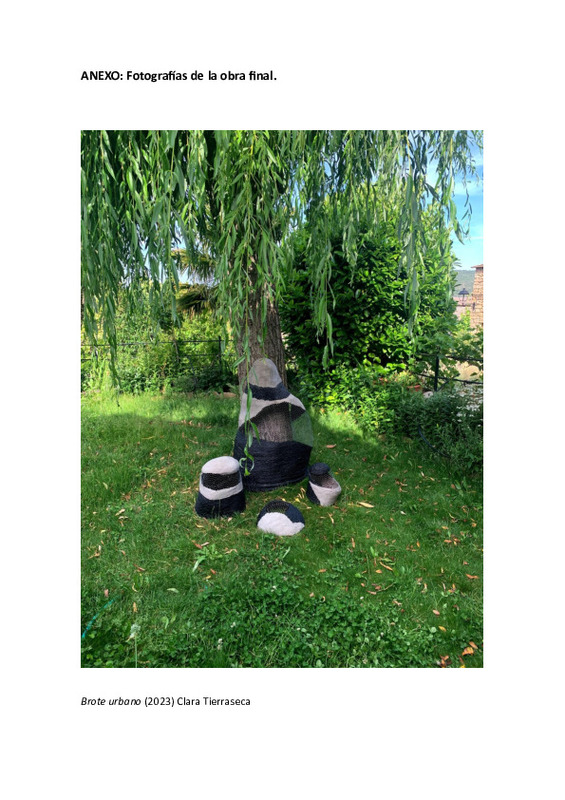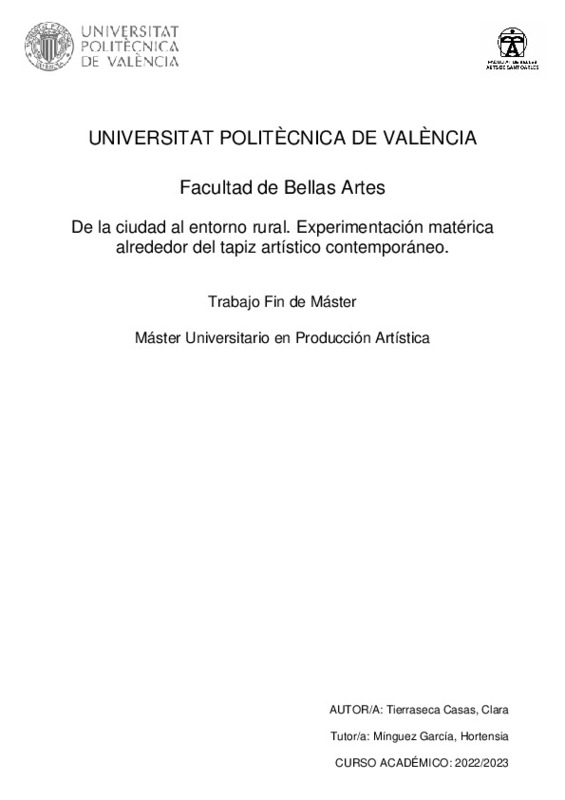JavaScript is disabled for your browser. Some features of this site may not work without it.
Buscar en RiuNet
Listar
Mi cuenta
Estadísticas
Ayuda RiuNet
Admin. UPV
De la ciudad al entorno rural. Experimentación matérica alrededor del tapiz artístico contemporáneo.
Mostrar el registro completo del ítem
Tierraseca Casas, C. (2023). De la ciudad al entorno rural. Experimentación matérica alrededor del tapiz artístico contemporáneo. Universitat Politècnica de València. http://hdl.handle.net/10251/199116
Por favor, use este identificador para citar o enlazar este ítem: http://hdl.handle.net/10251/199116
Ficheros en el ítem
Metadatos del ítem
| Título: | De la ciudad al entorno rural. Experimentación matérica alrededor del tapiz artístico contemporáneo. | |||
| Otro titulo: |
|
|||
| Autor: | Tierraseca Casas, Clara | |||
| Director(es): | ||||
| Entidad UPV: |
|
|||
| Datos GEO: |
|
|||
| Fecha acto/lectura: |
|
|||
| Resumen: |
[ES] El textil nos ha acompañado durante toda nuestra historia como seres humanos y sigue haciéndolo hoy en día. La capacidad que tiene el textil de ayudarnos a comprender nuestra historia a través de metáforas o como ...[+]
[EN] Textiles have accompanied us throughout our history as human beings and continue to do so today. Textile's ability to help us understand our history through metaphors or as a symbol makes it a widely used element in ...[+]
|
|||
| Palabras clave: |
|
|||
| Derechos de uso: | Reserva de todos los derechos | |||
| Editorial: |
|
|||
| Titulación: |
|
|||
| Tipo: |
|
recommendations
Este ítem aparece en la(s) siguiente(s) colección(ones)
-
BBAA - Trabajos académicos [5093]
Facultad de Bellas Artes








